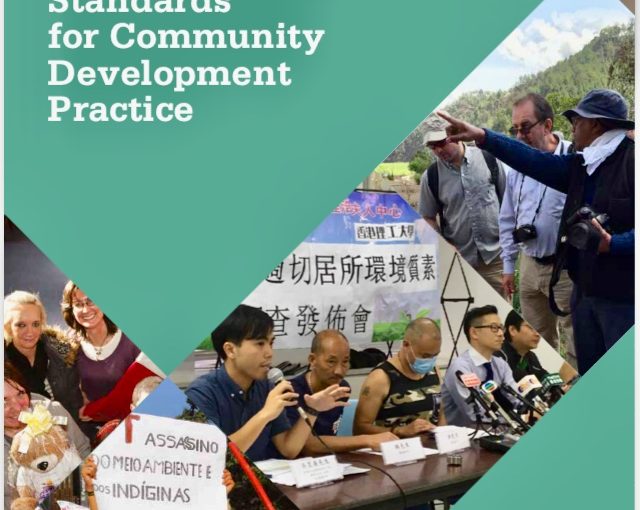IACD – as the only global community development network comprising practitioners, community development educators, policy advisers et al has in recent years, been keen to seek a closer consensus amongst its members on the nature, role, and responsibilities of community developers. In 2014 we commissioned a study to assess the number of community development education/training programmes (at degree and diploma level) that existed across the world and to look at how they were understanding what community development was all about. In doing this research we tried to find from secondary sources such as university websites, courses that claimed to be teaching community development across a wide range of disciplines and not just community work e.g. health work, community economic development, community education, social work etc. We found over a thousand such graduate level programmes.
The report was presented to the Board and AGM in 2015. It concluded that it appeared that community development was being understood quite differently, not only in different countries, but often between the higher education institutes (universities and colleges) within countries. As a result of this finding, the Board approved a recommendation that IACD produce its own global definition of community development. A full member consultation process was undertaken, leading to the presentation of a new definition to the Board and AGM in 2016. This was unanimously approved and has since been adopted by many national associations in different countries..
“Community Development is a practice-based profession and an academic discipline that promotes participative democracy, sustainable development, rights, economic opportunity, equality, and social justice, through the organisation, education, and empowerment of people within their communities, whether these be of locality, identity, or interest, in urban and rural settings.”
Following adoption of the IACD definition, the Board agreed to set up a Working Party to examine whether we might also agree a set of international standards for community development practice. This process started at the 2017 international conference in Auckland, with a well attended functional analysis workshop and was followed by an eighteen month period of member consultation together with research to identify national standards, which it was known had been produced since the early 2000s in some countries. In early 2018 a draft set of international standards was put out to member consultation, which led to the presentation and approval of a final report to the Board and AGM in 2018. The international standards have since been published in a dozen languages and widely disseminated, with launch events in Europe, Africa, Oceania, North America and Asia. It has proved to be IACD’s most widely disseminated publication clearly resonating with a desire from practitioners, employers and CD educators across the world for greater agreement as to what community development practice is all about.
In light of the positive feedback to the International Standards, the Board in 2018, set up another Working Party to examine whether IACD might have any role in the recognition, endorsement and accreditation of qualifying level programmes across the world. We knew that in some countries national bodies already existed that had the role of validating such programmes, thus giving them a ‘currency’ that employers recognised. And that for example, across the E.U. there was legislation requiring recognition of such training in one member country to allow practice in another. We also believed that in the majority of countries no external professional accreditation of community development courses existed. Might IACD have a role as the international professional body in recognition, endorsement and accreditation?

